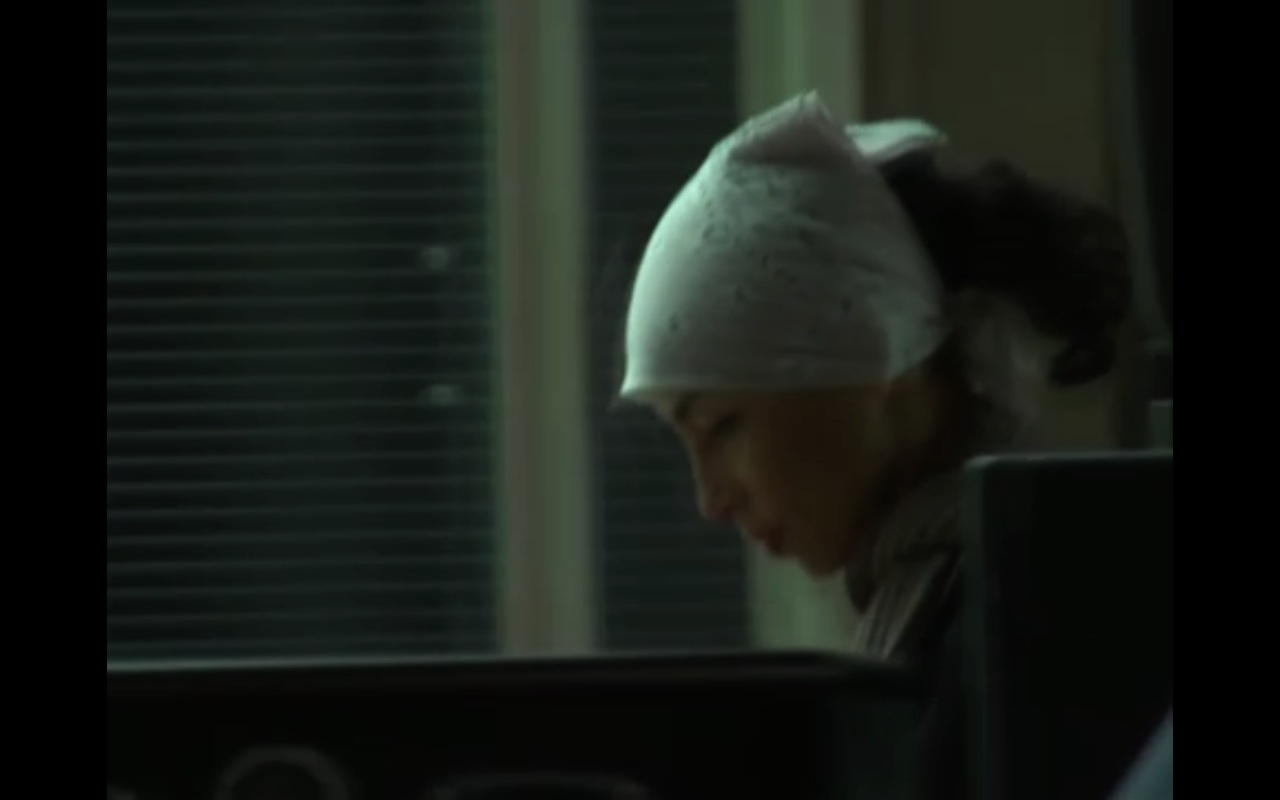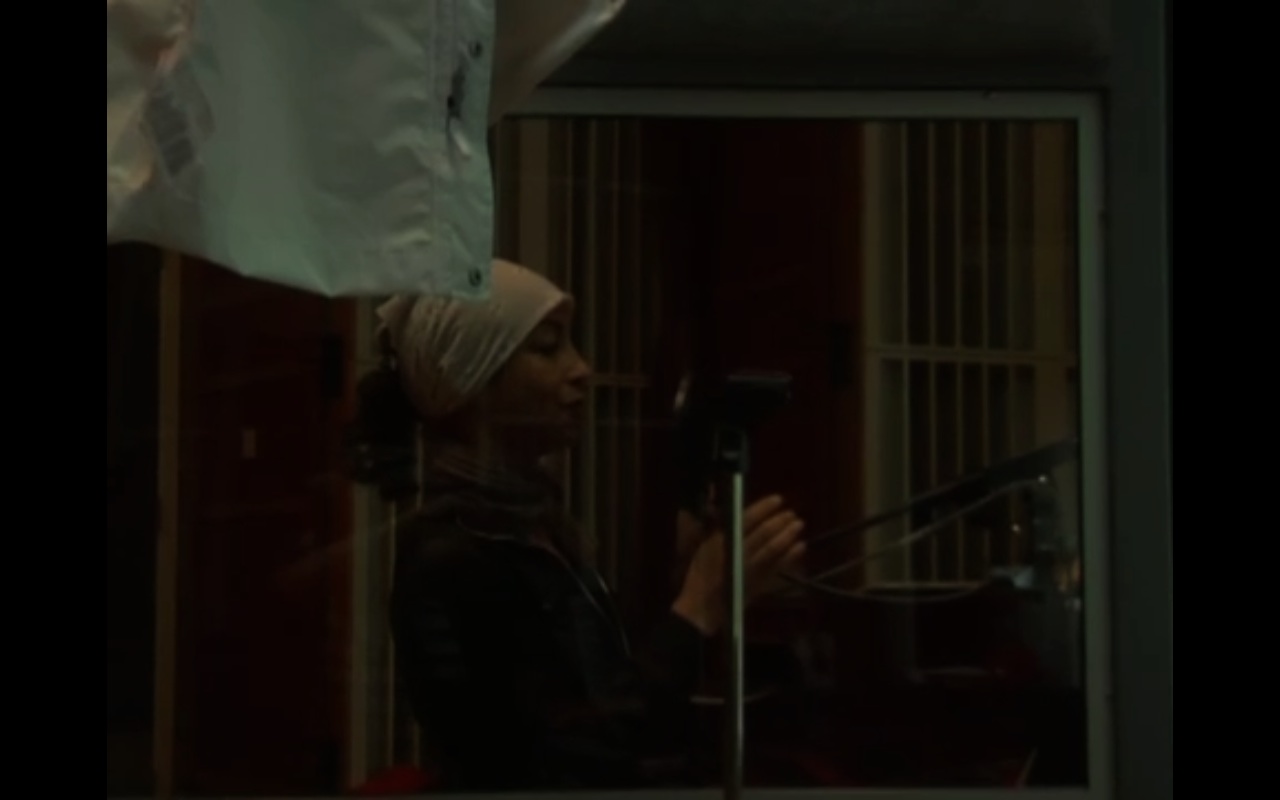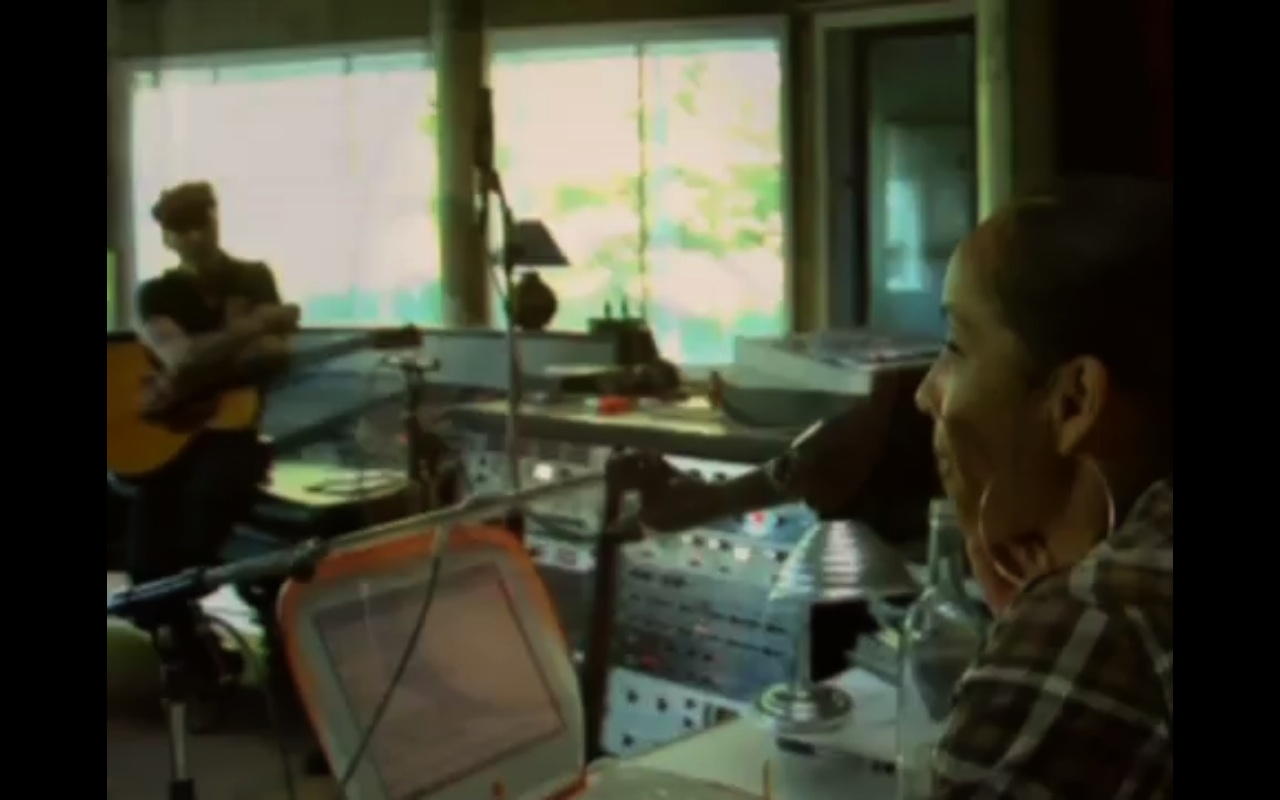Posts Tagged It’s Only Love That Gets You Through
Sade As Wounded Warrior
Posted by Gavin Bradley in Production, Singing, Writing on March 18, 2010
It hurts to write a single sour word about Sade. Being a lover of music in many disparate genres it’s difficult to play favourites, but over time I’ve come to realize that Sade does hold the Best Artist spot for me. Against much more obvious competition, ‘The Sweetest Taboo’ has unexpectedly landed as my favourite song, and 1985’s ‘Promise’ would be the album I’d take to a desert island.
She, the woman, and they, the band, have come to represent high taste and integrity in music. They’ve built a trust in their fans that the product will be filtered and distilled before it reaches us: there is no chance for cheapness to get through. Much of their music has been slow-burn: it takes time for such subtle grooves and sparse melodies to get under the skin. The last few albums of new material, each released in a different decade, have been increasingly moody and subtle–increasingly less immediate, but with a satisfying payoff after repeated listens. Although Sade has never professed to be a vocal athlete, the band is always on point and the ambiance she brings with her cool presence makes them one of the few live acts that I cannot miss. With a 10-year gap since their last studio album, curiosity and expectations were high. I put off writing about the band’s new album, ‘Soldier Of Love’ for several weeks in order to digest it and give it a fair shot.
Sade has allowed unprecedented media access this time around, and in the course of it much has been made about her previous insistence on privacy. She shook hands around the room at the NYC album listening party, performed the single on every major talk show, and satirized herself in a guest appearance on the Wanda Sykes show. Articles like this one in the London Times have combined historical context with personally revealing interviews. Soundbites from a recorded interview were made available here. A short film surfaced discussing the making of the album, and then another appeared about the making of the first video.
Sales have been excellent, indicating that the band’s following is still a faithful army in this day where the pirate download has become standard. The album went straight to number one on the Billboard chart and held strong, proving strong radio action is not required to sell such a trusted band these days.
So is the new disc good? It is. I’m afraid to say however that it’s not phenomenal, and certainly not groundbreaking or revelatory.
Let’s do a little bit of history. The band began as a live jazz outfit. 1984’s ‘Diamond Life’ was made up largely of songs they’d already been playing around London, including most notably their throwback anthem ‘Smooth Operator’. Robin Millar produced, beautifully packaging their organic jazz café sound, a sound which spun out into a movement in 80s England with bands like The Style Council and Simply Red filling out the genre. In the first few videos a narrative was built around Sade as a jazz-club diva mixed up in a gangster plot. Album tracks like ‘Frankie’s First Affair’ and ‘Sally’ brought seedy, urban characters to life. ‘Hang On To Your Love’ and ‘Your Love Is King’ were classic, universal love songs.
The band’s follow-up, ‘Promise,’ arrived just a year later with the melodically sweeping first single ‘Is It A Crime’ continuing the torch song tradition. ‘The Sweetest Taboo’ was a light singsong with darker lyrical undertones, built around a highly original syncopated kick-and-rimshot pattern not heard in music before or since. ‘You’re Not The Man,’ another stunning jazz ballad, only appeared on vinyl as the b-side of ‘Taboo’; it was thankfully included on the non-vinyl versions of the album. ‘Maureen’ and ‘Tar Baby’ were again character pieces, but this time Sade took a page from her personal life, singing about her best friend and her grandmother. The first hint of sequenced electronics appeared on ‘Never As Good As The First Time’ and a quick scan of the album credits reveals that this was one of the band’s first forays into sharing production duties with Robin Millar. It was the first sign of a departure they were about to take.
While it’s easy to see that most of their early material was built around elaborate, classic melody, ‘Never As Good’ is a groove-based song. Sitting somewhat conspicuously next to fully organic songs on the album, the drum machine loop and percolating synths settle us into a hypnotic groove, and the verse vocal weaves itself rhythmically into that groove, the melody flipping between two neighbouring notes. It is a different way to write music: it comes from the opposite angle, building on a rhythmic foundation rather than a melodic one.
There was a 3-year break. When the band returned with ‘Stronger Than Pride’ in 1988, they had taken over production duties from Millar, who, tragically, had gone blind from an inherited retinal disease during the recording of ‘Promise’. The jazz influence had faded, echoed only on the horn arrangement in ‘Clean Heart’. It was replaced by the band’s own unique R&B sensibility. Most importantly, they were favouring this new approach of writing over programmed loops, and here I believe is where Sade’s melodic and lyrical approach began to change from the lighter character-based storytelling of ‘Sally’ and ‘Maureen’ to a longer, drawn-out process of feeling around for the singer’s own subconscious undercurrents. There seemed to be a belief that the lyrics needed more sombre depth to them, more of a message.
1992’s ‘Love Deluxe,’ and 2000’s ‘Lover’s Rock’ furthered this direction, forging original works over many different feels and grooves. Unlike the big jumps on the first two albums, melodies generally fluttered between a few neighbouring notes, except on the more commercially viable songs ultimately chosen as lead-off singles (‘No Ordinary Love’ and ‘By Your Side’ respectively).
And now ‘Soldier Of Love’.
Despite the band’s insistence that they work hard not to repeat themselves, for the first time I feel there is a degree of repetition going on here. The title track bites chord progressions from ‘No Ordinary Love’ and melodic bits from ‘Somebody Already Broke My Heart’. The bouncing tambourine in the drum groove on ‘The Moon And The Sky’ also recalls ‘No Ordinary Love’; the rhythm track on ‘Skin’ recycles that of ‘Cherish The Day’. After ‘The Sweetest Taboo’ and ‘The Sweetest Gift,’ the title ‘The Safest Place’ looked oddly familiar in the track listings. It is also the obligatory beat-free moment on the album–a tradition that began with ‘Fear’ on ‘Promise’ and carried through, one track per album, with ‘I Never Thought I’d See The Day,’ ‘Pearls,’ and ‘It’s Only Love That Gets You Through’. If they were putting out records every two years, these similarities wouldn’t matter so much. But considering we’ve just had the longest gap between releases, I would have loved to see the band forge new paths rather than rely on old habits.
Once stating that timelessness was one of the mandates of her writing, Sade’s first lapses in taste have now happened: the cheap reference to Kool Moe Dee’s ‘Wild Wild West’ on the ‘Soldier Of Love’ single, perhaps meant to show light irony; the reference to ‘Michael, back in the day’ layered with a simulated MJ holler behind it on ‘Skin,’ likely included to acknowledge the loss of a personal hero; and a few somewhat embarrassing moments in ‘Babyfather,’ beginning with ‘she liked his smile, she wanted more, the baby’s gonna have your eyes for sure.’ The idea of including Sade’s daughter Ila and bandmate Stuart Matthewman’s son Clay as a childrens’ chorus on ‘Babyfather’ points toward a lapse in judgment due to unchecked parental pride. It is unfortunately likely to be the second single because it is the only light storytelling moment on the record, and there’s not much else with an obvious radio hook.
Production- and writing-wise there are some developments on the disc. A blues influence–something we first heard in the band’s cover of ‘Please Send Me Someone To Love’ on 1994’s ‘Best Of Sade’ collection–has emerged more strongly here on ‘Long Hard Road’ and ‘Bring Me Home’ among others. The reggae influence of ‘Lover’s Rock’ has deepened in the form of dub basslines peppered through the album and some lush three-part harmonies reminiscent of The Wailers on the bridge of the ‘Soldier Of Love’ single, which also boasts the new sonic colours of army battery drumming, futuristic synth effects and one ferocious hip hop snare. I welcome back Stuart Matthewman’s saxophone lines after their absence on ‘Lover’s Rock’. Upon sitting with the record, ‘The Moon And The Sky’ seems as though it will be one of the songs that will deepen with time. ‘Morning Bird,’ while cryptic and mournful, is exquisite and feels like the gentler moments of the 1996 Sweetback album (the band’s side project without Sade). ‘In Another Time’ feels like lazy writing, full of melodic gaps, but lyrically it is special in the way it captures a mother-daughter advice session.
There is a sentiment of sombre fortitude or bitter resolve present throughout the album; a running theme of being a soldier (the title track) or warrior (the closing track). The rest of the songs tend to lament loss or to wearily offer encouragement. I’m not sure whether this darkness reflects where Sade is at personally, or whether she feels it is only worthwhile to document the heavier things inside her, because the writing itself also feels quite laboured to me. One of her gifts as a writer has been her ability to reach in and describe a feeling directly or metaphorically, yet without a trace of cliché…case in point: the phrase on ‘Be That Easy’ where she states both simply and profoundly ‘for I am a broken house, I’m holding on a broken bow’. However I believe she has become fixated on this one particular gift rather than using her complete palette: for a very long time the songs have not been melody driven and they have not included those narrative stories less related to her personal demons and philosophies.
In the ‘Making Of Soldier Of Love’ footage–the first time information has been let out about the band’s creative process–there is a lot of talk about the ‘struggle’ involved in the writing process. The band and Sade herself express, wearily, an exhaustive search that goes on in the writing of each song. She explains that she stays away from the studio for long stretches of years because it’s such a commitment to go in and make an album. She sighs with the heavy weight of her own expectations that the music be built on truths and constructed with love. She flips through a stack of papers several inches thick saying ‘look how many words, look, all of this, it’s one song,’ revealing that there are endless rounds of adding and chipping away at words in the search for the right ones.
She analogizes her process: ‘once I start working on a song I sort of feel I’m on a boat, and the boat knows which way it’s going…sometimes the boat will go off course and I have to fight to steer it back.’ Also, ‘the three minutes where the song really comes together in that moment where it sort of arrives from the ether or wherever, then the rest, a lot of the rest is working on maintaining the spirit that came to you from no will of your own, and that’s the difficult part…being loyal to the original vibration and spirit of feeling that came with that song.’ This struggle, I feel, is a process Sade has put on herself, and in my experience it’s what would produce the heaviness, the laboured feeling of the music. While this gradual syphoning of the subconscious–of connecting to the ether without staring it down directly–is not an uncommon approach and it is valuable for some songs, we also know from her earlier work that she’s capable of balancing out this heaviness by writing sweeping melodic stories off the cuff.
And this is really what I want to say about the new album: it may be that Sade now goes into the studio simply trying to initiate the purge she believes is expected of her. In that way I believe she’s gradually misconstrued, by small degrees, what her job as a musician is. At the other extreme we have artists that push the boundaries as far as possible with each new album to break out of the shell of what’s expected. I feel the best work happens somewhere in the middle, in a space when original ideas are allowed to flow naturally with little reaction to what’s worked before. And the best songs seem to come when the conscious mind vaguely teases the subconscious out, but it is not always helpful to approach the studio expecting drawn-out martyrdom. I want Sade to have fun writing the music she presents to us.



